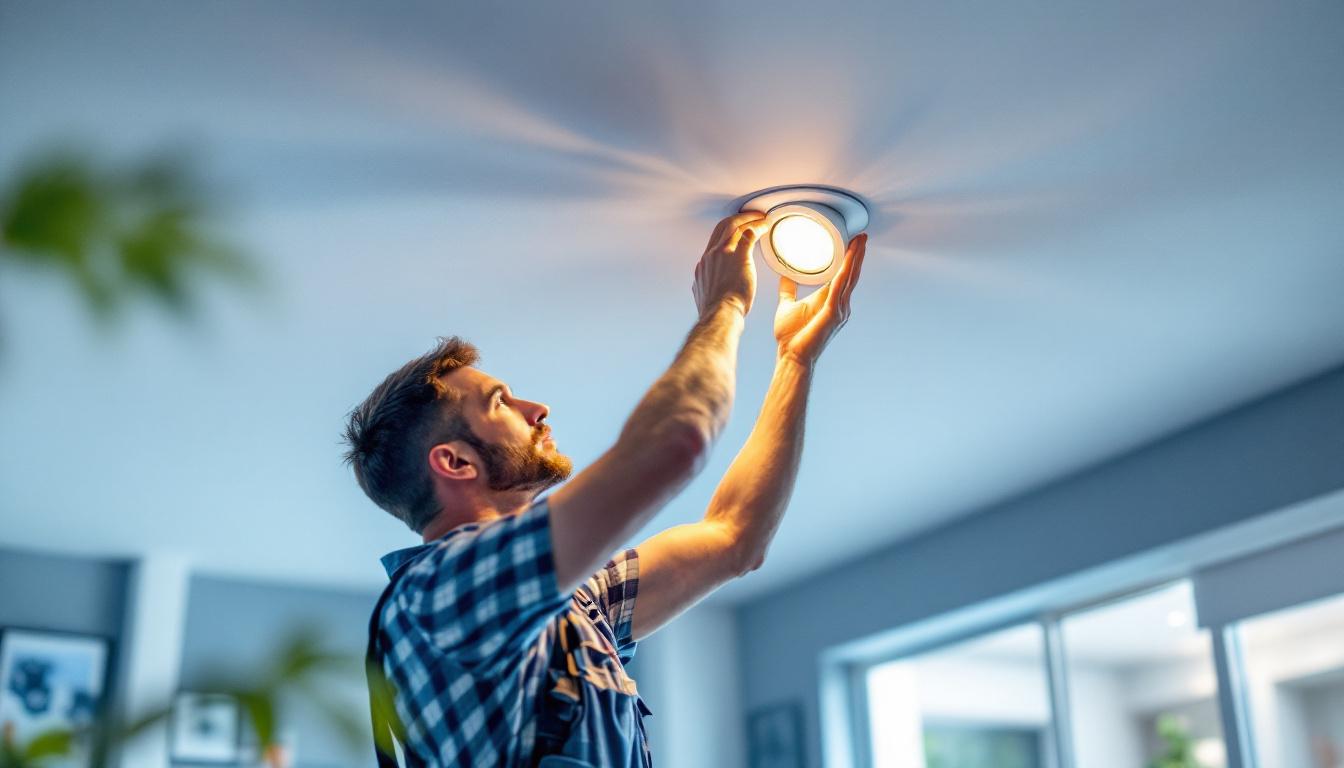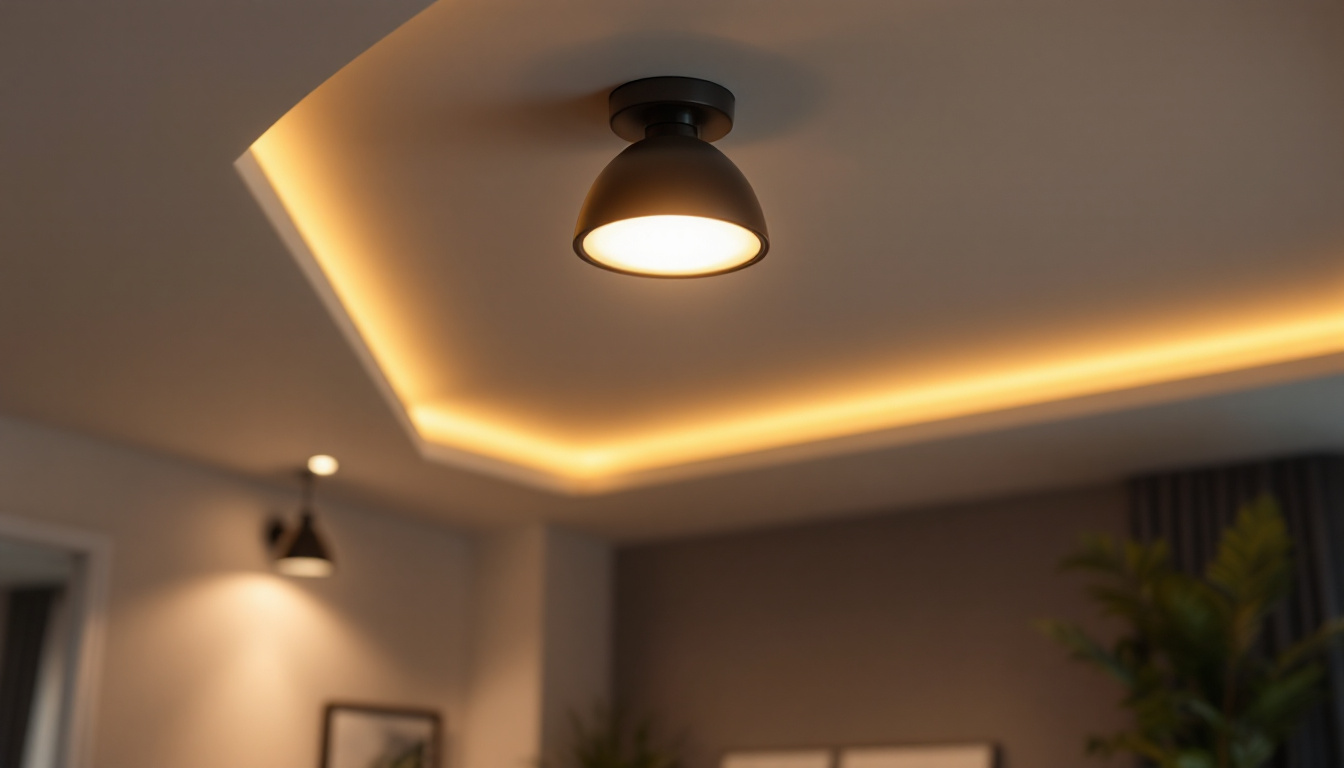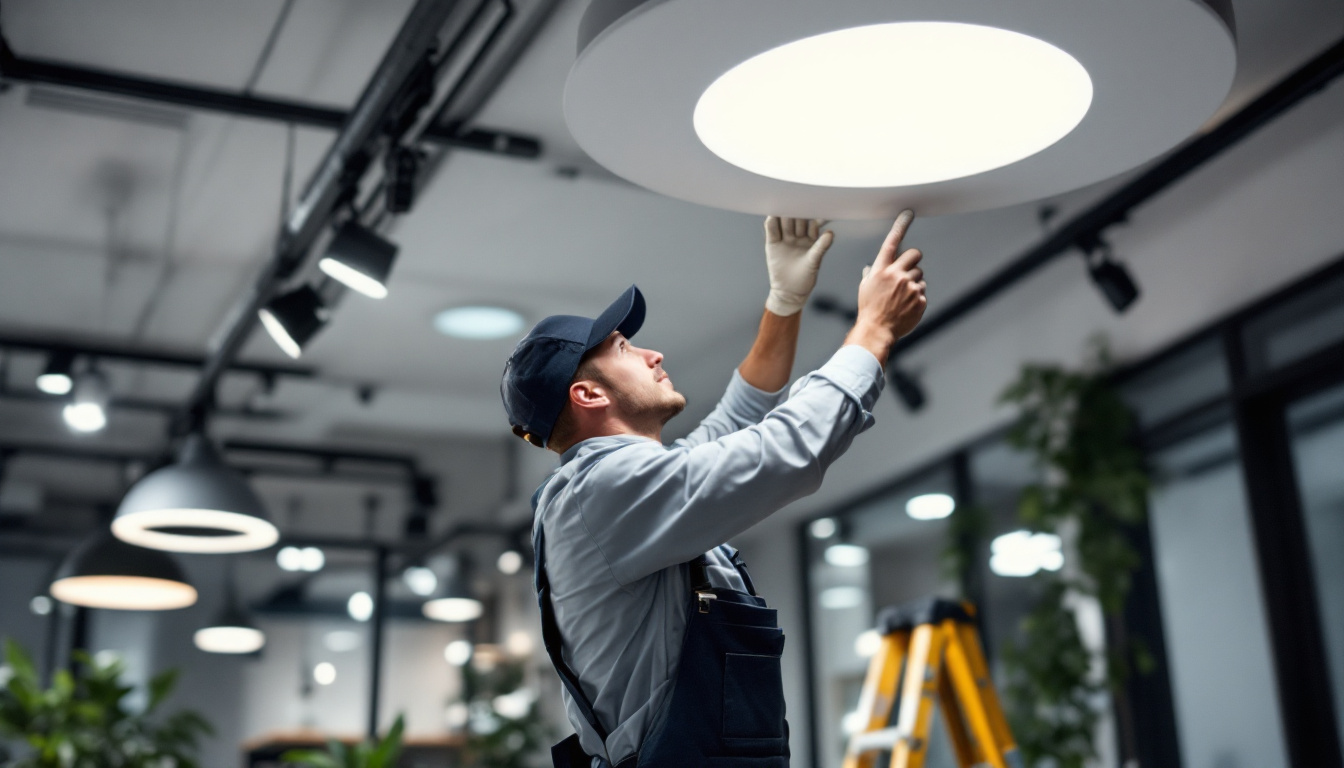
Lighting installations demand precision and reliability. Every component, no matter how small, plays a pivotal role in ensuring the system functions safely and efficiently. Among these components, the electrical screw connector stands out as a fundamental element that often goes unnoticed but is crucial for establishing secure electrical connections.
At its core, an electrical screw connector is a device used to join electrical conductors together, ensuring a stable and conductive path for electricity. In lighting systems, these connectors are vital for linking wires from power sources to fixtures, switches, and controls. Without a dependable connector, the entire installation risks failure, leading to flickering lights, shorts, or even fire hazards.
Moreover, the design of electrical screw connectors allows for easy installation and maintenance, making them a preferred choice among electricians and DIY enthusiasts alike. These connectors typically feature a simple mechanism where wires can be inserted and secured by tightening a screw, which not only provides a strong grip but also minimizes the risk of accidental disconnection. This ease of use is particularly beneficial in complex lighting setups, where multiple connections may be required, ensuring that even those with limited experience can achieve a reliable installation.
In addition to their practical benefits, electrical screw connectors come in various sizes and configurations to accommodate different wire gauges and types, making them versatile for a wide range of applications. From residential lighting to commercial projects, these connectors can be found in various settings, ensuring that the electrical integrity of the system is maintained. Furthermore, advancements in materials and technology have led to the development of connectors that offer enhanced durability and resistance to environmental factors, such as moisture and corrosion, which are particularly important in outdoor or industrial lighting applications.
Safety is non-negotiable in any electrical work. Electrical screw connectors provide a secure mechanical and electrical bond, reducing the likelihood of loose connections that can cause arcing or overheating. Loose or faulty connections are a leading cause of electrical fires in residential and commercial settings. The importance of using high-quality connectors cannot be overstated, as they are the first line of defense against potential hazards. In addition to preventing fires, proper connections also protect sensitive electronic components from damage due to voltage fluctuations or surges.
Moreover, these connectors help contractors meet stringent electrical codes and standards. Properly installed screw connectors comply with regulations set by organizations such as the National Electrical Code (NEC), ensuring that lighting installations pass inspections without issue. This compliance not only safeguards the property but also enhances the credibility of the contractor, as adherence to regulations is often a key factor in securing future projects. Furthermore, by using connectors that are certified and tested, contractors can provide peace of mind to their clients, knowing that their installations are both safe and reliable.
Lighting installations often involve vibrations, temperature fluctuations, and physical stress from handling or environmental factors. Electrical screw connectors maintain a firm grip on conductors, preventing wires from slipping or disconnecting over time. This mechanical stability is especially important in commercial or industrial lighting where fixtures may be subject to frequent maintenance or movement. The durability of these connectors means they can withstand the rigors of various environments, from damp basements to high-ceiling warehouses, ensuring that the lighting remains functional and efficient.
Additionally, the design of screw connectors allows for a more uniform distribution of pressure across the conductor, which helps to minimize wear and tear over time. This is particularly beneficial in installations where the lighting systems are frequently adjusted or repositioned. By providing a robust connection that can endure the stresses of everyday use, electrical screw connectors contribute to the longevity of the entire lighting system, reducing the need for costly repairs or replacements down the line.
Time is money in the contracting business. Electrical screw connectors simplify the wiring process by allowing quick and reliable connections without the need for soldering or complex tools. This efficiency translates to faster project completion and reduced labor costs. The straightforward installation process not only benefits seasoned electricians but also makes it easier for less experienced workers to achieve professional results, thereby enhancing overall productivity on the job site.
During maintenance or upgrades, these connectors allow for easy disconnection and reconnection of wiring, minimizing downtime. Contractors appreciate this flexibility, especially when working in tight spaces or on large-scale lighting systems. The ability to quickly swap out fixtures or make adjustments without extensive rewiring means that businesses can maintain their operations with minimal disruption. Furthermore, the use of screw connectors can also facilitate future upgrades, as new technologies emerge in lighting solutions, making it easier to adapt existing systems to incorporate energy-efficient or smart lighting options.
The most common type, these connectors feature a screw that clamps down on the wire, securing it in place. They are widely used in junction boxes and fixture terminals. Their simplicity and reliability make them a staple in lighting installations. The ease of installation is particularly beneficial for DIY enthusiasts and professional electricians alike, as they can quickly connect or disconnect wires without the need for specialized tools. Additionally, standard screw terminal connectors are available in various sizes and configurations, accommodating different wire gauges and types, which enhances their versatility in diverse lighting applications.
Barrier terminal blocks provide organized wiring with insulated barriers between connections, reducing the risk of short circuits. They are ideal for complex lighting setups where multiple circuits converge. These blocks not only simplify the wiring process but also enhance safety by preventing accidental contact between wires. Many barrier terminal blocks come with color-coded terminals, which aid in identifying connections quickly and accurately. This feature is particularly useful in larger installations, such as commercial buildings or stage lighting setups, where numerous connections must be managed efficiently. Furthermore, some models are designed to accommodate both solid and stranded wires, making them adaptable to various wiring needs.
Grounding is critical for safety. Special screw connectors designed for grounding wires ensure that the lighting system is properly earthed, protecting against electrical shocks and equipment damage. These connectors often feature a distinctive green color coding, which is universally recognized as the standard for grounding. In addition to providing a secure connection, grounding screw connectors can also help in reducing electromagnetic interference, which is essential for maintaining the performance of sensitive lighting equipment. When installed correctly, these connectors play a vital role in enhancing the overall safety and reliability of lighting systems, especially in environments where moisture or dust may pose additional risks. Moreover, they are often used in conjunction with circuit breakers and fuses, creating a comprehensive safety net for electrical installations.
Matching the connector to the wire gauge and application is essential. Using an undersized connector can lead to poor contact and overheating, while an oversized one may not secure the wire properly. Contractors should always verify the specifications of connectors against the wiring requirements of the lighting system.
Proper wire preparation ensures a solid connection. Stripping the insulation to the correct length without damaging the conductor strands is critical. Twisting stranded wires before insertion can improve contact, but care must be taken not to deform the wire.
Over-tightening can damage wires or connectors, while under-tightening risks loose connections. Using a torque screwdriver or following manufacturer guidelines helps achieve the optimal tightness, ensuring both electrical and mechanical integrity.
Periodic inspection of lighting installations can catch potential issues before they become hazards. Checking screw connectors for signs of corrosion, looseness, or wear is an important maintenance step, especially in environments exposed to moisture or temperature extremes.
In outdoor or damp locations, corrosion can degrade screw connectors, compromising connections. Using connectors made from corrosion-resistant materials or applying protective coatings can extend the lifespan of lighting installations.
Lighting fixtures often have limited space for wiring. Selecting compact screw connectors or terminal blocks designed for tight spaces helps maintain neat and safe installations without sacrificing connection quality.
LED lighting and smart controls sometimes require different wiring approaches. Electrical screw connectors must be compatible with low-voltage or specialized wiring to ensure seamless integration and performance.
Reliable electrical screw connectors contribute directly to the overall quality of lighting installations. They minimize callbacks due to electrical faults and enhance the longevity of the system. Clients notice when lights work flawlessly from day one and remain trouble-free over time.
For contractors, this reliability builds reputation and trust, leading to repeat business and referrals. Investing time in selecting and installing the right connectors pays dividends in customer satisfaction and project success.
Electrical screw connectors might seem like minor components in lighting installations, but their importance cannot be overstated. They are the linchpins that hold electrical systems together, ensuring safety, durability, and performance.
Contractors who understand and respect the role of these connectors deliver superior installations that stand the test of time. Proper selection, installation, and maintenance of electrical screw connectors are essential steps toward achieving excellence in lighting projects.
Ready to enhance the safety, durability, and performance of your lighting installations? Look no further than LumenWholesale for all your electrical screw connector needs. Our spec-grade lighting products are designed to meet the highest industry standards, providing you with the reliability and high performance necessary for any project. Take advantage of our unbeatable wholesale prices and enjoy the convenience of bulk buying without the hassle. With free shipping and no hidden fees, you can trust LumenWholesale to supply premium lighting solutions at the best value. Elevate your lighting projects today by visiting Wholesale Lighting at the Best Value and discover the perfect blend of quality, affordability, and convenience.

Discover essential insights and expert tips for lighting contractors on selecting and installing LED 3-inch recessed lights.

Discover essential tips and common pitfalls for lighting contractors installing ceiling pot lights.

Explore expert insights and best practices in commercial recessed lighting with this comprehensive guide tailored for lighting contractors.

Discover the future of illumination with our comprehensive guide on lighting automation.